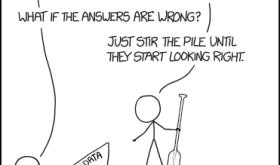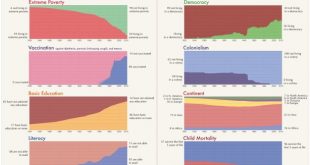from Lars Syll The master-economist must possess a rare combination of gifts … He must be mathematician, historian, statesman, philosopher—in some degree. He must understand symbols and speak in words. He must contemplate the particular, in terms of the general, and touch abstract and concrete in the same flight of thought. He must study the present in the light of the past for the purposes of the future. No part of man’s nature or his institutions must be entirely outside his regard. He...
Read More »SLAPP
Adani has been pretty quiet after the publication of a leaked memo from its newly hired law firm AJ & Co, named for its founder and managing partner, Andrew Johnson. AJ promised to act as an “attack dog” to silence opponents and sue them into bankruptcy, something Adani is already attempting in the case of indigenous leader Adrian Burragubba (I understand that funds have been raised to ensure that this doesn’t happen). This is what is known= as a Strategic Lawsuit Against Public...
Read More »Renewables workshop statement
Over the fold, the statement agreed to by a large group of participants at the renewable energy workshop I attended at ANU last week. Coverage in The Guardian and RenewEconomy . Electricity transmission, storage and market reform required now to achieve emissions targets 50 energy experts gathered for a three day symposium at the Australian National University last week to discuss the latest research on the role of renewable energy in Australia’s low-carbon transition....
Read More »The Ramsay Centre is frightened of academic freedom
I just signed a petition opposing any agreement between the Ramsay Centre and the University of Queensland, where I work. I am disappointed that things have reached this point. The areas of the humanities that Ramsay would support have long been underfunded: they don’t fit into either the market-driven ideology of “reform”, or the more recent technocratic push for STEM. The problem is that, quite evidently, the Ramsay Centre wants to control who teaches the courses and how they...
Read More »Machine learning — getting results that are completely wrong
from Lars Syll Machine-learning techniques used by thousands of scientists to analyse data are producing results that are misleading and often completely wrong. Dr Genevera Allen from Rice University in Houston said that the increased use of such systems was contributing to a “crisis in science” … The data sets are very large and expensive. But, according to Dr Allen, the answers they come up with are likely to be inaccurate or wrong because the software is identifying patterns that exist...
Read More »Open thread Feb. 19, 2019
Poverty and inequality—on a global scale
from David Ruccio It should perhaps come as no surprise that, as capitalism has been called into question and socialism generated increasing interest during the past decade, capitalism’s defenders have resorted to a long historical view. Look, they say, how capitalist growth has decreased poverty and led to improvements in people’s lives around the globe. Just stick with it and all will eventually be well. That’s why, as Jason Hickel points out, the above infographic, based on...
Read More »The quest for certainty — a new substitute for religion
from Lars Syll In this post-rationalist age of ours, more and more books are written in symbolic languages, and it becomes more and more difficult to see why: what it is all about, and why it should be necessary, or advantageous, to allow oneself to be bored by volumes of symbolic trivialities. It almost seems as if the symbolism were becoming a value in itself, to be revered for its sublime ‘exactness’: a new expression of the old quest for certainty, a new symbolic ritual, a new...
Read More »The financial sector: discredited but unchallengable
The Economic Society of Australia regularly polls a panel of members seeking responses to statement on policy issues. The most recent was unusual both for a low response rate (admittedly, it was run in January) and for the unanimity of the answers. This may be attributed to the strong formulation of the statement “There is no way to significantly increase the degree to which Australian retail banks act in the interests of consumers.” None of the respondents accepted this, but the...
Read More »Sandpit
A new sandpit for long side discussions, conspiracy theories, idees fixes and so on. Like this:Like Loading...
Read More » Heterodox
Heterodox



